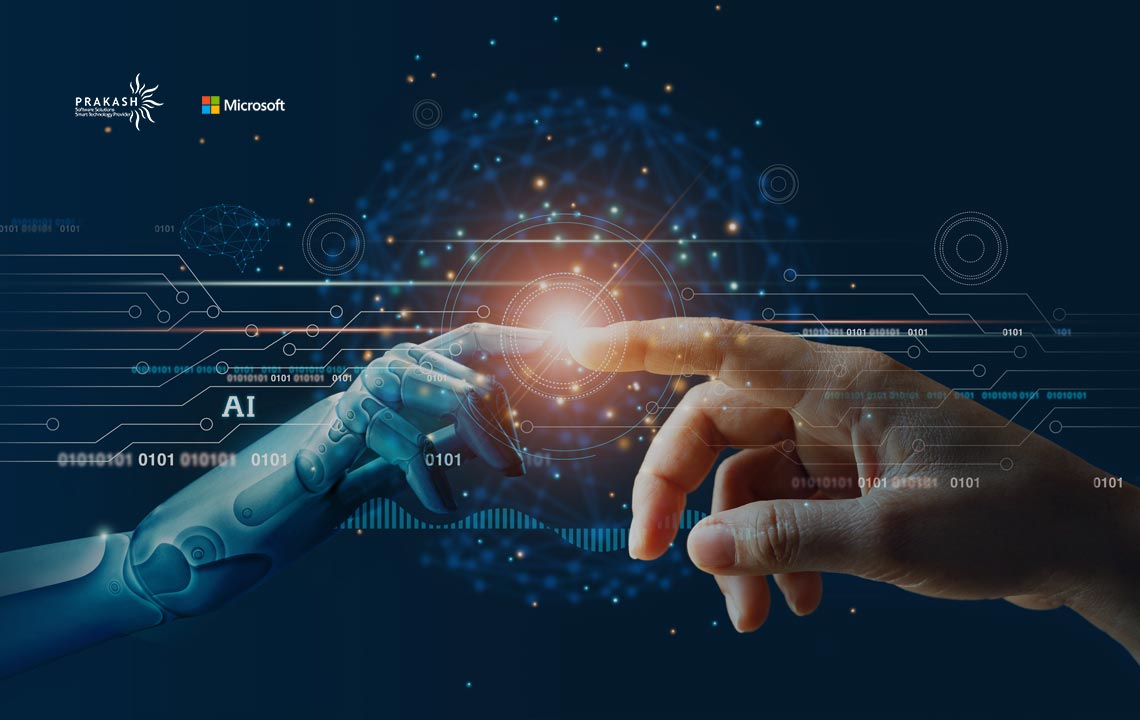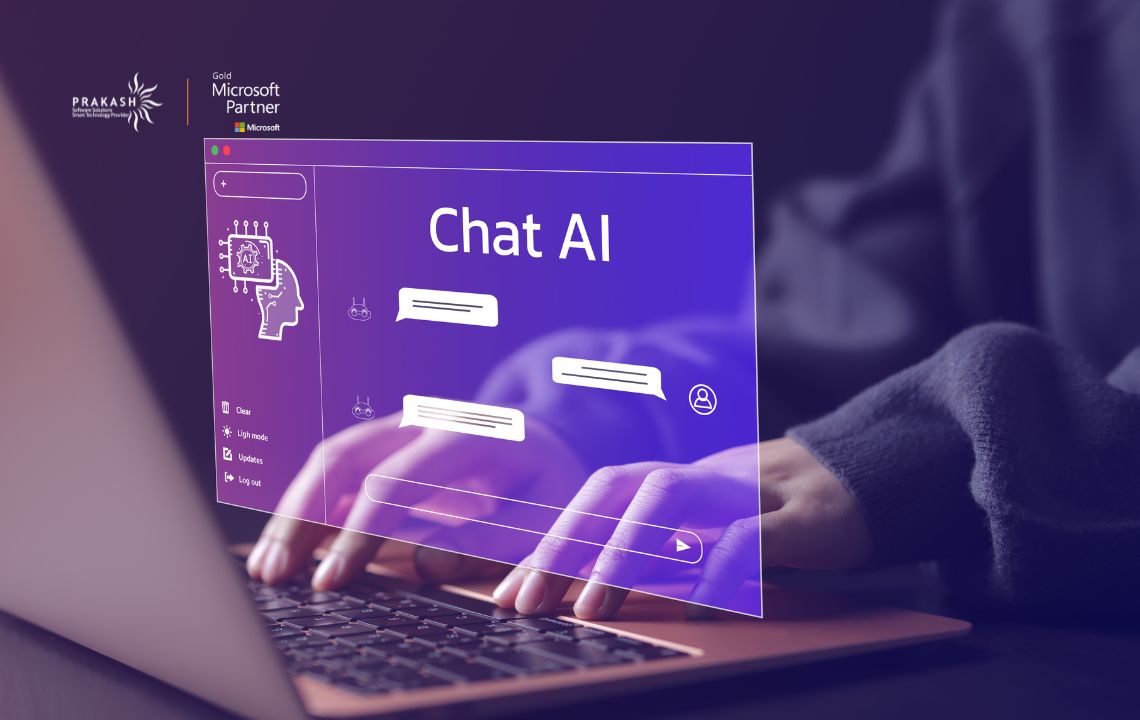
How Generative AI and AI Development Services Are Transforming Industries?
Generative AI is transforming industries and propelling business change in previously unheard-of ways in today’s rapid technology environment.
There are numerous possible uses for generative AI, ranging from enhancing consumer experiences to streamlining processes.
The demand for AI development services is rising rapidly as companies in the USA and throughout the world adopt this cutting-edge technology.
This blog will discuss the future of AI-powered products, how generative AI is changing many industries, and how it might improve business efficiency.
What is Generative AI?
A subset of artificial intelligence technology known as “generative AI” is made to use patterns found in data to produce new material, such as text, photos, music, or even code.
Generative AI is a potent instrument for creativity and invention since it actively creates new content, in contrast to standard AI models that concentrate on evaluating and interpreting data.
Large language models like GPT-3, deep learning models that can produce lifelike visuals, and AI-powered content production platforms are a few instances of generative AI.
Businesses are increasingly looking to use generative AI in the context of AI development services in order to optimize processes, cut expenses, and provide individualized consumer experiences.
Businesses can gain a competitive edge, streamline operations, and open up new growth prospects by leveraging generative AI.
“Generative AI will empower businesses to innovate faster and create more value than ever before.” – Sundar Pichai, CEO of Alphabet.
The Role of AI Development Services
AI development services are crucial for developing and implementing generative AI solutions that meet specific business requirements.
These services enable enterprises to fully leverage artificial intelligence through the use of cloud platforms and state-of-the-art frameworks like TensorFlow and PyTorch.
AI development firms provide the seamless integration and scalability of generative AI systems while optimizing performance to meet evolving corporate goals.
Generative AI Is Transforming Several Industries
Generative AI has significantly impacted a number of industries. There is no one-size-fits-all answer. The following industries stand to gain from generative AI:
The Media and Entertainment Sector
By enhancing the creation of new works, generative AI solutions have a major impact on the media and entertainment sector. Generative AI can be used in this industry to create new material, customize roles, share content, and alter media consumption habits.
Education Sector
In the field of education, generative AI has the potential to significantly affect the wellbeing of both teachers and pupils. These generative AI technologies are transforming education through improved access to educational resources, enhanced efficiency, positioning customization for teachers, individualized learning, etc.
The Advertising Sector
The advertising sector is significantly impacted by the use of generative AI solutions. Companies are able to produce unique materials and new ad copy more quickly. AI-powered tools can be used in the following industries to improve ad ranking, customize creative professional roles, create new advertising creative resources, and improve ad consumption.
The Healthcare Sector
Generative AI has the potential to significantly impact the healthcare industry since it enables the analysis of enormous amounts of data and the development of customized treatment regimens. Healthcare companies can increase diagnostic rates, enhance access to healthcare, and customize treatment programs by using these tools.
Accenture estimates that by 2026, healthcare AI technologies could save the US economy up to $150 billion yearly.
Finance Industry
Finance Industry Generative AI has the ability to significantly impact the banking industry by enabling the analysis of enormous amounts of data and producing investment recommendations. By combining these, a company can assist its customers by suggesting investment possibilities, increasing risk control, and facilitating easier access to financial services.
Automotive Industry
Generative AI is being used by the automotive sector to streamline its design and production procedures. By learning from enormous volumes of driving data, artificial intelligence (AI) is utilized to improve autonomous vehicle technology and create effective designs for auto parts.
Generative AI is being used by companies such as Tesla and BMW to create more effective manufacturing processes, which lower production costs and enhance vehicle performance.
The Role of AI Development Services in Implementing Generative AI
Businesses are using AI development services to deploy these cutting-edge solutions as the need for generative AI keeps increasing. Custom AI models and solutions that meet the unique requirements of firms in a variety of industries are the specialty of AI development companies.
AI development services assist companies in creating unique models, determining the best uses for generative AI, and incorporating them into current systems. To guarantee that AI solutions continue to provide value over time, these services also help with data collecting, model training, and continuous optimization.
How Businesses Can Benefit from AI Development Services?
Tailored Solutions: AI development services provide solutions that are specifically designed to meet the needs and objectives of every company.
Scalability: AI systems can be expanded to accommodate companies’ expanding needs, which facilitates simpler market adaptation.
Cost Savings: Generative AI can lower labor costs and boost profitability by automating procedures and enhancing operational effectiveness.
Which Methods Need to Be Used When Using Generative AI in Business?
When using generative AI for business, a company that develops generative AI should adhere to these five steps.
Determine the Appropriate Use Case
You ought to begin assessing the aspects of your company where generative AI can have a big influence. Companies need to consider the issues they wish to resolve as well as the possible benefits. These could include customer service, data analysis, content creation, and product design.
Design the AI’s capacities
To use generative AI, businesses must develop the requisite AI capabilities. The next step entails collaborating with the AI solution and using internal expertise. Choose the strategy that makes the most use of organizational resources after weighing your options.
Create a Sturdy Data Structure
High-quality data is the foundation of generative AI, which produces insightful results. Strong infrastructure should be used by organizations to store, gather, and process pertinent data. To guarantee accuracy and dependability, designing a solid data architecture involves data governance, data integration, and data cleansing procedures.
Giving Ethical AI Deployment Priority
Selecting an ethical and responsible AI deployment strategy is essential when utilizing generative AI in the workplace. Provide precise rules for handling ethical issues and privacy problems. The implementation of AI is linked to risk mitigation in order to guarantee accountability and transparency.
Track Results
Create quantifiable KPIs and indicators that align with the organization’s goals in order to assess the efficacy of generative AI. To determine the areas that require improvement, the influence of AI, and how best to optimize AI initiatives, businesses should regularly monitor and examine the results of AI systems.
Discover how customized solutions from generative AI can transform your business.
For professional AI development services, get in touch with PSSPL right now!
How is Generative AI being used by other businesses?
There are numerous instances of leading businesses using generative AI technology in various contexts. Examine examples and evaluate how companies have used these approaches to leverage their operations.
AI Capabilities Contributed by Microsoft and OpenAI
OpenAI creates AI LLM capabilities and provides businesses with them as a service. Businesses may use cutting-edge AI models to enhance customer service, data analysis, and content production by working with OpenAI.
Furthermore, Microsoft has made an investment in AI capabilities through the development of Microsoft 365 Copilot, which transforms human language into effective productivity solutions.
Facebook and Amazon: Establishing a Sturdy Data Infrastructure
To support the Generative AI software, Amazon has established a strong data infrastructure. Being an online retailer, it gathers a variety of consumer information that enhances the shopping experience.
Additionally, Facebook keeps up a sizable data infrastructure that makes generative AI applications possible. Facebook’s algorithm creates personalized news feeds and targeted ads by gathering user data.
IBM and Microsoft: Managing an Ethical Deployment
With its AI Fairness 360 toolkits, IBM places a strong emphasis on the ethical application of AI. Additionally, it helps businesses assess and reduce the biases in AI models.
It prevents discrimination in lending and employment. Microsoft has put ethical considerations like accountability, transparency, and privacy at the forefront of its AI deployment procedures.
Final Words….
Many industries are undergoing fast change as a result of generative AI, which presents companies with previously unheard-of chances for expansion and creativity.
AI development services are assisting companies in leveraging the potential of generative AI to improve productivity, cut expenses, and provide more individualized experiences for their clients in a variety of industries, including healthcare and entertainment.
The possible uses of generative AI will grow as this technology develops further, changing sectors and influencing how businesses operate in the future. Businesses who adopt these developments will be in a strong position to prosper in the upcoming AI-driven future.



